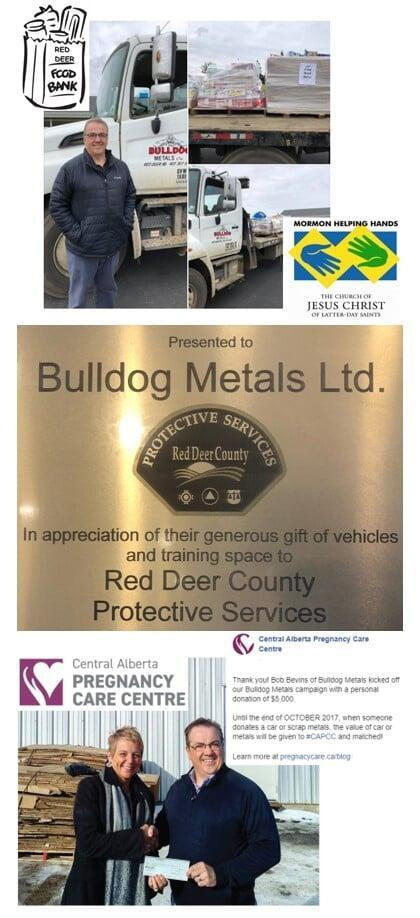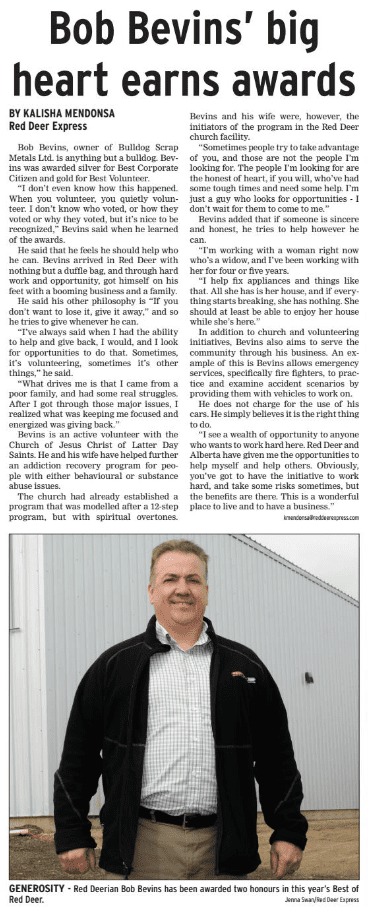The Start
Bulldog Metals was started in 2003 with a simple half-ton truck then worked up to converting an auto-wrecking yard into a metal recycling facility in 2007. We were very excited in 2014 to have transitioned over into our new facility at 4305 78 St Cres in Red Deer. You can trust our staff with over 50 years of experience in metal recycling.
Our goal is to process and recycle as much scrap materials as possible in order to play our part in keeping our environment clean, by using less energy producing new metals. Most of our recycled metals are sold to steel mills which are then exported and used in the fabrication of things like new cars, and new pipe. Playing your part in saving the environment is as easy as a visit or a phone call to Bulldog Metals.

Being an example
Bulldog Metals strongly believes that by being an example to others we can make a better world and support each other. Supporting families and individuals around us we can create a huge impact in their lives and promote waves of good actions.
Look around, you will definitely find someone to help.
Invite the people around you to do the same.
Community engagement
Bulldog Metals is engaged in working collaboratively with and through groups of people affiliated by geographic proximity to address issues affecting the well-being of those people.
Community engagement is a powerful vehicle for bringing environmental and behavioral changes that will improve the health of the community and it's members. It often involves partnerships and coalitions that help mobilize resources and influence systems, change relationships among partners, and serve as catalyst for changing policies, programs and practices.



